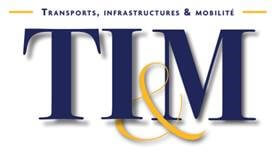The OPSTE is continuing the cycle of exchanges on the challenges of the decarbonization of transport which began in bulletins #6 and #7 and is focusing more particularly on the efforts of countries to decrease the greenhouse gas emissions of the road sector.
While the overall framework is determined on the level of the European Union through the legislative texts presented since 2021 to materialize the orientations of the Green Deal, underscoring the need for legislative initiative to implement the industrial transitions and changes of behaviors, each country acts as a function of its own specific characteristics. In all countries, roads account for most of the passenger and merchandise transport, and the outlook for modal transfer does not suggest that they will lose their central role in the various mobility systems, regardless of whether we consider the national or regional levels. The transition of road transport in the broad sense is underway. It reveals very substantial room for improvement, but it will require a great deal of proactive initiative, cooperation and investment.
With this short tour of eight European countries (Germany, Belgium, Spain, France, Greece, Italy, Poland, and Switzerland, which is not part of the EU), we see several cross-cutting issues which apply to all of the countries:
- The systemic nature of the ecological transition of road transport of both passengers and merchandise,
- The room for improvement in fundamental and applied research must be considered in a complex dynamic which includes geopolitical, economic, urbanistic, legal, and regulatory issues, etc.,
- Competition for access to raw materials and products which are indispensable for the development of new techniques comes in addition to the industrial and international competition, which is already very lively,
- The high costs of these changes, both for communities and for companies and consumers,
- The need for medium- and long-term planning which promotes a collective dynamic of transition between the multiple actors involved.
The decarbonization of road transport raises industrial and energy issues, calls for new developments on road networks, and raises questions for public authorities regarding the means to ensure the acceptability of both the financial efforts and the changes of behavior to be undertaken.
Consult or download bulletin #8:
The next OPSTE bulletin will be devoted to the transport regulation organizations established by the States in response to the framework defined by the European Union.


